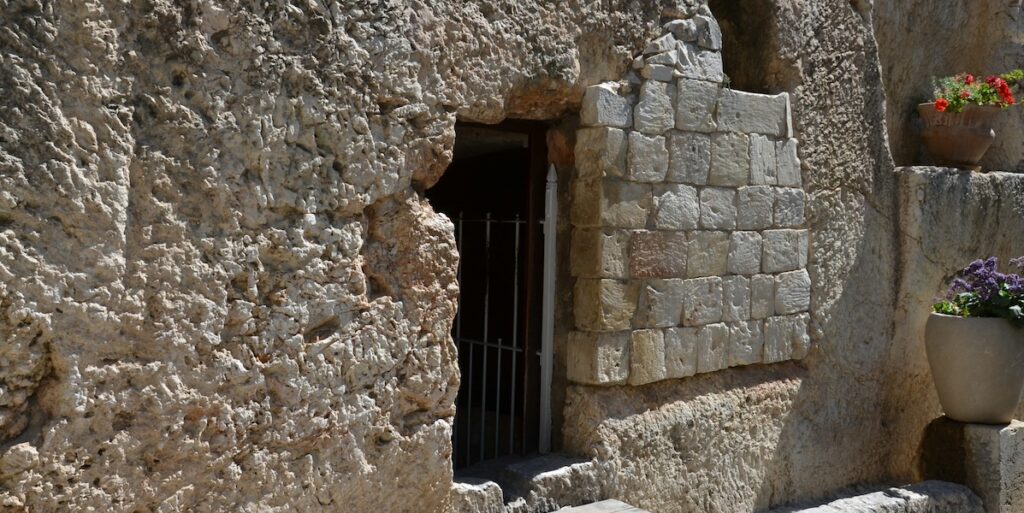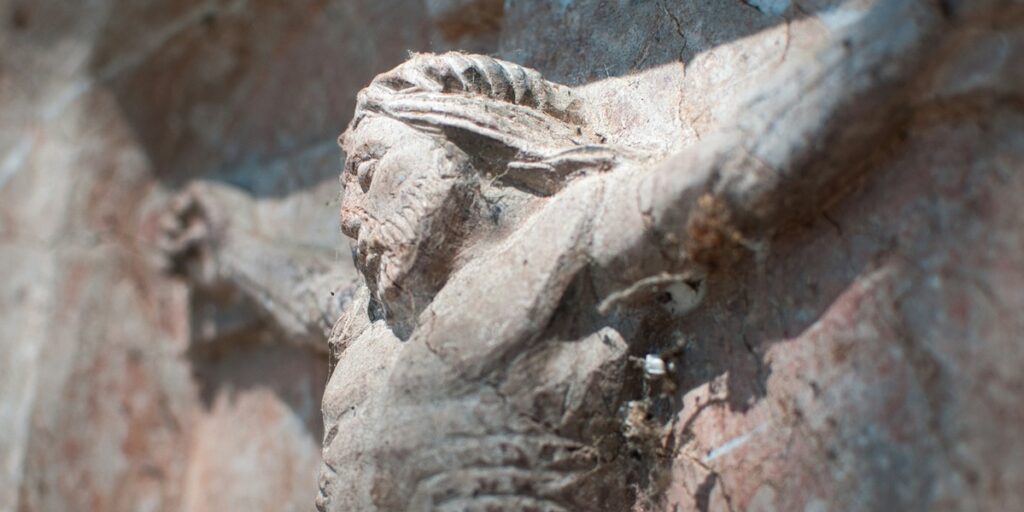What does God look like?
The Jewish and Christian traditions emphasize that God doesn’t have a body, which means God doesn’t have a face. God is Spirit, so God isn’t confined to a body. The Spirit of God permeates the universe, including our bodies. For Christians, this is seen most concretely in Jesus. But God in God’s essence does not have a body.
And yet there is a beautiful story in Genesis that teaches us how to see God’s face.
That may be confusing. How can God be without a body and yet have a face?
I hinted at the answer above – the Spirit of God permeates the universe, including you and me. As St. Teresa of Avila said in the 16th century,
Christ has no body now but yours. No hands, no feet on earth but yours. Yours are the eyes through which he looks compassion on this world. Yours are the feet with which he walks to do good. Yours are the hands through which he blesses all the world. Yours are the hands, yours are the feet, yours are the eyes, you are his body. Christ has no body now on earth but yours.
This means that the way to see the face of God is to look at the faces of our fellow human beings.
Sibling Rivalry
There is a great story in Genesis about this spiritual truth. The story is about twin brothers named Esau and Jacob.
The brothers seemed destined for rivalry from the beginning of their lives. Esau was born first, but even in his mother’s womb, Jacob was jealous of his brother. In the womb, Jacob grasped at his brother’s heal to pull Esau back into their mother’s womb. Jacob wanted to be born first. Jacob wanted what his brother had, and this led them into rivalry.
Yet as they grew older, these two brothers developed some major differences. I suspect that they resented each other. It may seem paradoxical, but in their resentment for each other, they shared a desire to differentiate themselves from each other. If you grew up with siblings, you probably know this truth about being human.
Esau was a man’s man. He was hairy, which was a sign of his manhood. He loved hanging out with their father. One of his favorite things to do was to hunt with the men.
Jacob was a momma’s boy. His skin was smooth and hairless. He hung out in the tent all day, cooking with the women.
Esau fulfilled the expected gender roles of his society. Jacob flaunted those roles.
Stealing the Family Inheritance
The day came when their father, Isaac, was to bless Esau with the family inheritance. As the first-born son, the family inheritance was Esau’s birthright. Isaac wanted to give Esau the family inheritance because Isaac favored Esau.
But their mother, Rebekah, favored Jacob. So she developed a plan for Jacob to steal Esau’s birthright. Isaac was very old and was nearly blind. While Esau was out on a hunt, Rebekah skinned an animal and told Jacob to put the animal skin on his arms so he would seem hairy. Then she told Jacob to go to his father and pretend to be Esau. Jacob went to his father, pretended to be Esau, and Isaac blessed Jacob with the family inheritance. The plan worked perfectly.
Except for the fact that when Esau returned from his hunt, he discovered that his brother had stolen his inheritance.
Esau hated Jacob and vowed to kill him.
Rebekah heard that Esau planned to kill his brother, so she told Jacob to run away to safety at her brother’s house in a village named Haran. She promised to send a message to Jacob in the future, when Esau had forgotten about the incident and it was safe to return.
How To See the Face of God
Many years later, Esau had become successful and wealthy. He no longer held Jacob’s deceitful actions against him. Jacob had also become successful and wealthy, but not to the extent as Esau. So along with his family, servants, and livestock, Jacob made the long trek back to his hometown.
As he was traveling, Jacob saw Esau traveling toward him off in the distance. Jacob was full of anxiety. Had Esau really forgiven him? Esau’s servants outnumbered Jacob’s. Were Esau and his men going to fulfill the vow to kill Jacob?
No. Instead, Esau had worked through his resentment toward his brother. Instead of killing his brother, the story says that “Esau ran to meet [Jacob], and embraced him, and fell on his neck and kissed him, and they wept.”
This was a radical moment of forgiveness between the two brothers. Instead of revenge, there was reconciliation. Jacob responded to Esau’s forgiveness by saying, “…for truly to see your face is like seeing the face of God—since you have received me with such favor.”
So, how can you see the face of God?
For all of his deceitfulness, Jacob knew one truth – that God comes to us in the Spirit of forgiveness and favor. Esau’s forgiveness was a sign pointing to the forgiveness and favor that God bestows upon all of us. God invites us to participate in that kind of forgiveness with one another. Now, this doesn’t mean we need to stay in a relationship with the other person. In fact, Jacob and Esau go their separate ways. Sometimes forgiveness might mean reconciliation. Sometimes it might mean refusing to seek revenge. And sometimes it means we agree to go our separate ways. But what forgiveness always means is that in forgiving one another we see the face of the God who is the Spirit of forgiveness.




